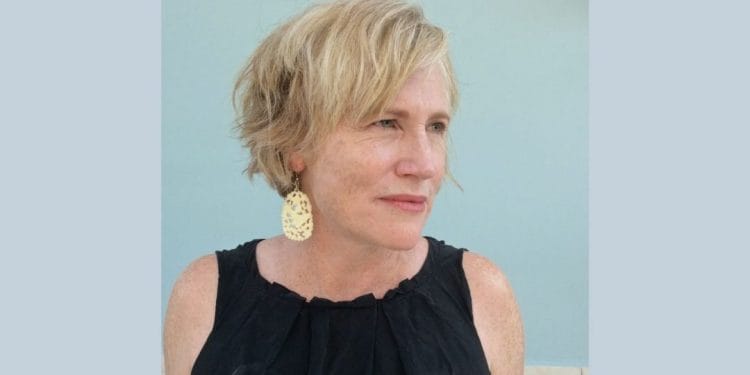Jessica Wilson is the director and writer of Passenger which will have its UK Premiere at the Greenwich+Docklands Festival.
Greenwich+Docklands International Festival (GDIF), London’s leading festival of outdoor theatre and performing arts, runs from 21 June – 6 July in locations across Royal Greenwich, East London and, for the first time, the City of London. This year, the annual free outdoor festival features more than 130 performances and 15 UK premières, and includes opening and closing ceremonies in celebration of the spirit of the people and places in which these two major events will take place.
Passenger runs 26th – 29th June 2019.
You’re directing the UK Premiere of your own play Passenger, what can you tell us about it?
Passenger is set on board a moving bus and it uses the windows of the bus as screens, making the streets and people outside part of a filmic landscape. It is loosely structured like a short film and draws specifically on the tropes of the Western. Our main character is subtly based on a cowboy seeking to right a wrong in a place where the law is broken. But this Western is set in 2019, and the frontier landscape is the world of corporate capitalism.
What inspired you to write Passenger?
Baudrillard was an important reference early on. He likens driving a car to being in a bubble where you have an altered awareness of the world outside; “the dashboard is a console and the windows as television screens”. When you are inside a vehicle you can easily enter into a similar mode to that of watching a film. The conversation and music inside your vehicle influence how you interpret the passing world. Our thematics and story all grew from there.
As a group of artists we are also interested in how image and sound are increasingly used to manipulate us to buy into ideas and narratives. So, we wanted to use the screens of the bus to subtly manipulate the audience into reading a city they are already familiar with, in a completely different way. We experiment a lot with the line between truth and fiction.
We made the premiere in an area of Melbourne called the Docklands. It’s a very stark financial and banking environment – similar but on a smaller scale to Canary Wharf. The place is so consciously constructed that it feels like a film set.
Passenger pulls all these threads into a theatrical format where we are overhearing a conversation between two passengers, and that conversation becomes more and more filmic before it goes in a very unexpected direction.
It was staged in Melbourne, have you made any changes for the UK Premiere?

The show requires a certain kind of route, which connects the text and music with what the audience is seeing in the outside landscape. So, we have done a lot of driving and discovering of streets, roundabouts and highways!
Also, we have adapted the content of the script to make it specific to the UK context and are working with a fantastic UK female lead performer, Victoria Moseley.
Tell us more about the participatory elements of Passenger?
The audience is on board a bus. The bus is like their theatre with the two lead performers sitting amongst them as passengers. The audience participate only in the way they read the outside world. It can be a very exciting sensation that leaves you tingling and alert.
What are you looking forward to most about being at Greenwich+Docklands International Festival?
I have loved being part of GDIF. The festival has really worked hard to make this show happen in London. It has involved resolving a heap of seriously curly logistical issues. Sited work is pretty challenging for a festival and GDIF has forged a particularly unique position in terms of its capacity and bravery to present works like Passenger.
What would you say to anyone thinking of coming to see Passenger?
Just sit back and let the content wash over you. Look outside for unusual things in the streets. Some of them are made by us, but most of them are the world performing for us for free!













